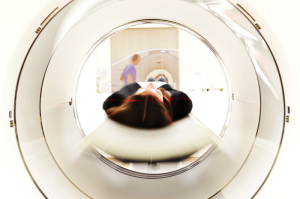by
Thomas Dworetzky, Contributing Reporter | May 24, 2017
Despite concerns in Europe over gadolinium-based contrast agents used in MR, the FDA “has not identified adverse health effects from gadolinium retained in the brain after the use of gadolinium-based contrast agents (GBCAs) for magnetic resonance imaging” after a two-year study of the issue, it announced on Monday.
“Our recommendations for health care professionals and patients remain unchanged from July 2015, when we informed the public that we were investigating this potential risk with GBCAs,” it stated.
While continuing to study the safety issues, it has announced that, “because we identified no evidence to date that gadolinium retention in the brain from any of the GBCAs, including GBCAs associated with higher retention of gadolinium, is harmful, restricting GBCA use is not warranted at this time.”



Ad Statistics
Times Displayed: 120730
Times Visited: 6941 MIT labs, experts in Multi-Vendor component level repair of: MRI Coils, RF amplifiers, Gradient Amplifiers Contrast Media Injectors. System repairs, sub-assembly repairs, component level repairs, refurbish/calibrate. info@mitlabsusa.com/+1 (305) 470-8013
This contrasts with
the conclusions drawn by the Pharmacovigilance Risk Assessment Committee (PRAC) of the European Medicines Agency (EMA), which in March said that it had finished its “assessment of gadolinium agents used in body scans and recommends regulatory actions, including suspension for some marketing authorizations.”
The specific agents banned by PRAC include:
Gadobenic acid, marketed under the trade name MultiHance by Bracco
Gadodiamide, sold under the trade name Omniscan by GE Healthcare
Gadopentetic acid, marketed as Magnevist by Bayer HealthCare Pharmaceuticals
Gadoversetamide, sold as Optimark by Guerbet
The four at issue are all linear agents that have “a structure more likely to release gadolinium,” the group advised.
Macrocyclics are more stable, and the committee has recommended using those instead, “at the lowest does that enhance images sufficiently to make diagnoses, and only when non-enhanced body scans are not suitable.”
Not all linear agents would be taken off the shelves. PRAC noted that gadoxetic acid “can remain on the market, as it meets an important diagnostic need in patients with few alternatives. In addition, a formulation of gadopentetic acid injected directly into joints is to remain available because its gadolinium concentration is very low – around 200 times lower than those of intravenous products. Both agents should be used at the lowest dose that enhances images sufficiently to make diagnoses, and only if unenhanced scans are not suitable,” it recommended.
According to this week's FDA release, the PRAC decision is “currently undergoing an appeal.”
To date, said the agency “the only known adverse health effect related to gadolinium retention is a rare condition called nephrogenic systemic fibrosis (NSF) that occurs in a small subgroup of patients with preexisting kidney failure. NSF is a painful skin disease characterized by thickening of the skin, which can involve the joints and cause significant limitation of motion within weeks to months.”

